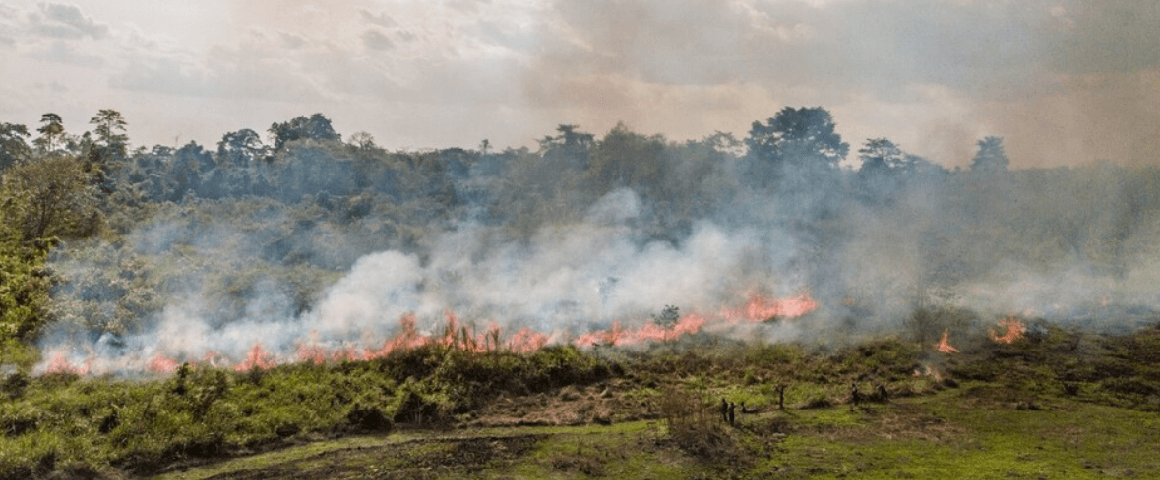- Home
- Worldwide
- CIRAD worldwide
- Projects
- TERRI4SOL project
Soil restoration and multifunctionality of degraded forest landscapes in Ivory Coast - TERRI4SOL

Fire is traditionally used to manage post-forest landscapes in Ivory Coast. © CIRAD
Issues
Ivory Coast, whose economy is mostly based on the primary sector (cocoa, rubber, wood, coffee, cashew, cotton), developed thanks to agriculture in the 20th century. That development occurred to the detriment of the forest cover in the country, and of soil health. Today, the country faces three major agricultural and forestry challenges:
Switch from agriculture based on the fertility of newly cleared forest lands to sustainable zero‑deforestation agriculture adapted to climate challenges ;
Switch from “gathering” type forest exploitation to sustainable production from managed trees in dedicated plantations, such as agroforestry systems ;
Move beyond the agriculture/forest dichotomy within multifunctional and resilient territories.
Description
The project comprises three components:
- Support the Ivorian authorities and the stakeholders involved in conserving and restoring organic carbon stocks in drawing up and implementing a “4 pour 1000” / Triple A strategy;
- Develop multifunctional regional development scenarios for agricultural, forest and post-forest territories preserving and restoring organic carbon stocks (soil and air), by improving the biophysical and socio-economic knowledge of organic carbon dynamics;
- Along with the populations in the La Mé pilot region, co-construct and implement local, multifunctional and consensual land development scenarios for the territories targeted by the project, and assess their climatic and socio-economic impacts.
Expected changes
The project will contribute to the local, economic and social development of the country on the following points:
- Sustainable development of local populations (100 villages, 450 camps, 514,700 inhabitants);
- Preserving, renewing and adding value to agricultural and forestry capital by demonstrating that it is possible to reconcile the reduction of pressure on natural resources and rural economic development, while increasing food security;
- Acquisition of technical knowledge on soil fertility restoration.
- Mitigating climate change, reducing deforestation and forest degradation;
- Testing of development strategies with negative emissions at the pilot site;
- Formulation of recommendations for implementing the adaptation policies presented by Ivory Coast under its “national determined contributions”;
- Support to the national REDD+ process, notably for taking soil carbon into account and mobilizing the funds needed for scaling-up.
- Adding value to ecosystem services and goods, and biodiversity protection and restoration.
























